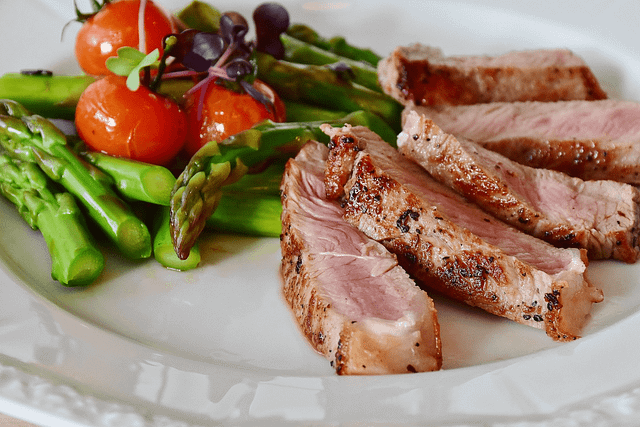
How to Boost the Immunity Naturally?
Is it essential and even possible to strengthen your immune system? Novel Corona virus has once again made us familiar with the term immunity. So, Yes, the immune system has a remarkable job of defending the body against disease-causing microorganisms. A microorganism can enter your body and defeat your immune system to make you sick. Then what can we do to protect ourselves, and how can we boost immunity? Bolstering your immunity requires several dietary and lifestyle changes that enhance natural defence to fight harmful pathogens and disease-causing organisms.
Healthy living strategies for boosting the immune system include:
- Exercising regularly – Experts recommend a 150 minutes per week moderate exercise
- Eat a healthy and balanced diet which is high in fruits and vegetables
- Maintaining a healthy weight – BMI of 25 or lower is the ideal. The best way to lose weight is by doing regular exercise and a healthy, balanced diet
- Getting quality sleep – set a routine for sleeping and practice good sleep hygiene
- Learn to reduce and cope stress -Include activities in your daily life to handle stress by techniques like practising yoga, meditation, mindfulness and exercise regularly. Likewise, improve mental health by meeting loved ones and sharing your thoughts and problems
- Quitting smoking
- Drinking less alcohol
- Take measures to prevent infection
Discussed below these points are elaborated in detail that how they help to boost your immune system naturally.
Drink plenty of water
Drinking water does not protect you from germs, bacteria and viruses but is extremely important for improving your overall health. Studies claim that dehydration hinders physical performance by affecting focus, mood, digestion and kidney function. It can also cause a discomforting headache. Subsequently, these complications increase the chances of a person to fall ill.
Other fluids like juices and fruit water can also be used to prevent dehydration, but water is better. Water is recommended as it is free of calories and other additives. Some people require more water intake if living in a hot climate and working extensively.
It is worth here that the urge of the body to demand water in older people decreases. But water is equally essential in them, so they have to drink water even if not feeling thirsty. Drinking less water can make you more prone to the illness, so make sure to keep your body hydrated.
Fermented foods and probiotics supplements can boost immunity
Gut health and immunity are interconnected, proved by many studies. Fermented foods and prebiotics boost the immune system by identifying and killing harmful foreign pathogens.
According to frontiers in immunology, “the gut immune system is influenced by many factors, including dietary components and commensal bacteria. Although probiotics (live microorganisms) and prebiotics (food components) have shown promise as treatments for several diseases in both clinical and animal studies, an understanding of the molecular mechanisms behind the direct and indirect effects on the gut immune response will facilitate better and possibly more efficient therapy for diseases”.
Fermented foods like yoghurt, are rich in probiotics (beneficial bacteria) helps the immune cells to differentiate between healthy body cells and dangerous invading organisms.
“In a 28-day study in 152 people infected with rhinovirus, those who supplemented with probiotic Bifidobacterium animalis had a stronger immune response and lower levels of the virus in their nasal mucus than a control group”, stated by Healthline.
Decrease your stress levels to boost immunity

It is mandatory to relieve stress to improve immune health. Stress increases inflammation as well as imbalance the functioning of immune cells. Researches have proved that prolonged anxiety, especially psychological stress, suppresses the response of the immune cells in children.
Stress can be relieved by practising meditation, exercise, yoga and mindfulness practices. If the stress levels continue, then you should consult a therapist or a counsellor.
Taking the first step is difficult but matters the most when you want to make a change. You can alleviate the symptom of stress by taking small steps. Set short term but achievable goals, have a walk around, meet friends, avoid negativity and others. Along with a will, try the following steps to “snap out of depression.”
Supplements to boost immunity
According to Chris D’Adamo, PhD, director of the Center for Integrative Medicine at the University of Maryland School of Medicine. In addition to lifestyle change, some supplement in moderation can improve the immune response of the body.
- Ascorbic acid or Vitamin C can prevent viral, bacterial and seasonal infections by decreasing the duration of colds.
- Vitamin D is an essential nutrient which provides strength to the immune system and reduces the risk of cold and flu.
- Vitamin A can help improve the body’s ability to fight infection, especially respiratory infection, when used for a short term.
- Zinc helps reduce the number and duration of infection, such as common cold if taken within 24 hours of onset
- Selenium is a crucial nutrient to boost the immune system. It is also an antioxidant which provides defence against bacteria, viruses and cancer cells.
- Honey proves to be good at relieving inflammation of the mucous membrane. It also has antioxidant properties and microbial effects and helps in the ailment of sore throat or cough. Homey can be added to tea, hot water or lemon water.
- Probiotics contain good bacteria that improve gut health and regulates the immune system. These bacteria are also helpful in reducing the chances of respiratory infections, particularly in children.
Sleep has a potential role in boosting immunity
Sleep and immunity are interlinked. Less sleep is closely associated with higher susceptibility to falling ill. Different studies have proved that people who sleep less than 6 hours are more likely to catch a common cold due to decreased immunity.
The question arises of how much sleep is adequate sleep? Adults must have at least 7 hours of sleep every night; however, the younger kids require a higher sleeping hour. 8-10 hours of sleep is suitable for kids in teens. Likewise, younger children and infants must sleep up to 14 hours for 24 hours.
If someone is struggling with problems regarding sleeping, then a few little amendments in the daily routine can help. Simple strategies can make a difference and improve your sleep. A regular exercise of a half an hour daily exercise makes you fall asleep better at night. Another way is to reduce the intake of caffeine, nicotine, and alcohol helps you to sleep better.
Eat more whole plant foods
Plant food such as vegetables, fruits, nuts, seeds, and legumes are a rich source of nutrients and antioxidants that gives your immune system an upper hand in the fight against harmful pathogens.
A good number of antioxidants in these foods help reduce inflammation and combat free radicals, which causes inflammation when present in your body at high levels. Chronic inflammation is associated with numerous health conditions, such as heart disease, Alzheimer’s, and a few cancers.
Moreover, the fibre in plant foods increases your gut microbiome, a community of healthy bacteria in your gut. Gut microbiome improves your immunity and prevents harmful pathogens from entering the body via the digestive tract.
Furthermore, fruits and vegetable have plenty of nutrients like vitamin C, which can play a vital role in reducing the duration of the common cold.
Eat more healthy fats

Healthy fats, like those present in olive oil and salmon, may boost the immune system to protect from pathogens by reducing inflammation. However, low-level inflammation is a natural response to stress or injury, but chronic inflammation can affect the immune system by weakening it.
Olive oil is highly anti-inflammatory and helps decrease the risk of chronic diseases like heart disease and type 2 diabetes. In addition to anti-inflammatory properties, olive oil helps the body fight off harmful disease-causing pathogens. Omega-3 fatty acids which are present in food like salmon and chia seeds, also fight inflammation.
Healthy fats like olive oil and omega-3s have a significant anti-inflammatory activity since chronic inflammation lowers the activity of the immune system; these fats help in naturally combating illnesses.
Cut off added sugars
Ongoing researches suggest that added and refined sugars have carbs that contribute disproportionately in increasing weight and obesity. Obesity increases the risk of various problems, likewise heart problems, diabetes and hypertension.
Cutting your sugar intake can decrease inflammation and helps in weight loss, therefore, reducing the risk of chronic health disorders like type 2 diabetes and heart diseases. Problems like obesity, diabetes, and heart disease may weaken the immune system. By limiting added sugars can play a part in the immune-boosting diet.
It is better to strive to cut down the sugar intake to less than 5% of your daily calories. It equates to about two tablespoons of sugar for someone who is on a 2,000-calorie diet. Refined sugars contribute significantly to obesity, heart diseases, and type-2 diabetes, all of which suppress the immune system. Lowering sugar intake may decrease inflammation as well as the risk of these diseases.
Perform regular moderate exercises
Although prolonged and intense exercise gives you extreme fatigue. However, moderate exercise works in reverse and improves the immunity. Studies show that as minimum as a single session of moderate exercise improves the effectiveness of vaccines in people with compromised immune systems.
Even more, the consistent exercising routine may reduce inflammation and helps in the regeneration of the immune cells. Examples of moderate exercise are steady bicycling, brisk walk, light jogging and swimming. A physically fit person should aim for at least 150 minutes of moderate exercise per week.
Moderate exercise helps in reducing inflammation and improving health by increasing the turnover of immune cells. You can select any form of physical activity you feel comfortable with like running, cycling, jogging, walking, swimming, and likewise can be the options.
Conclusion
If you commit to bringing lifestyle and dietary changes, you can strengthen your immune system. As per discussion in the above article reduce your sugar intake, stay hydrated, work out, have an adequate sleep, and manage your stress levels. In a few months, you are going to feel a difference that these changes have reinforced your body’s defence mechanism and have boosted the immune system.









